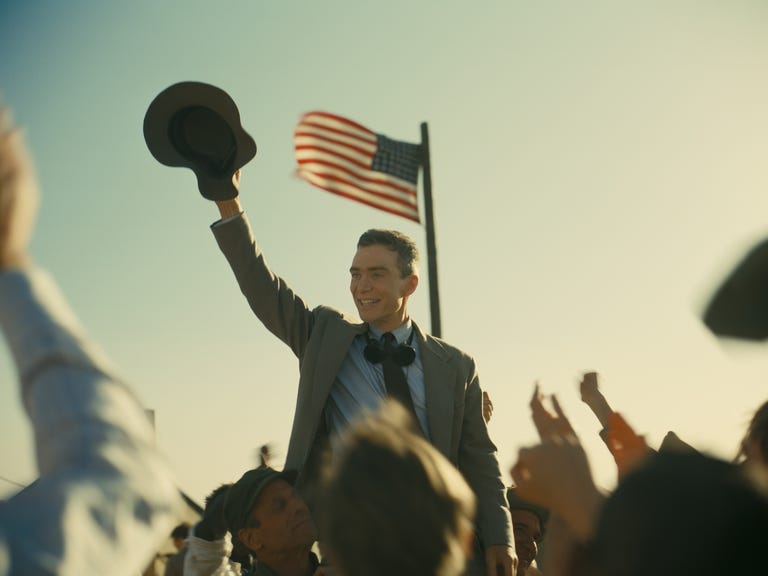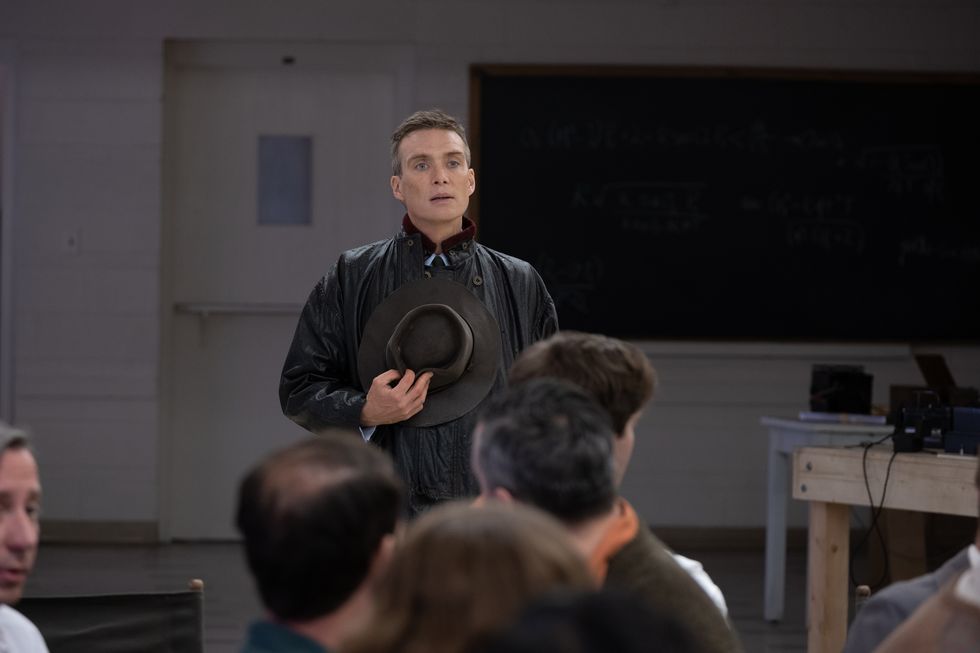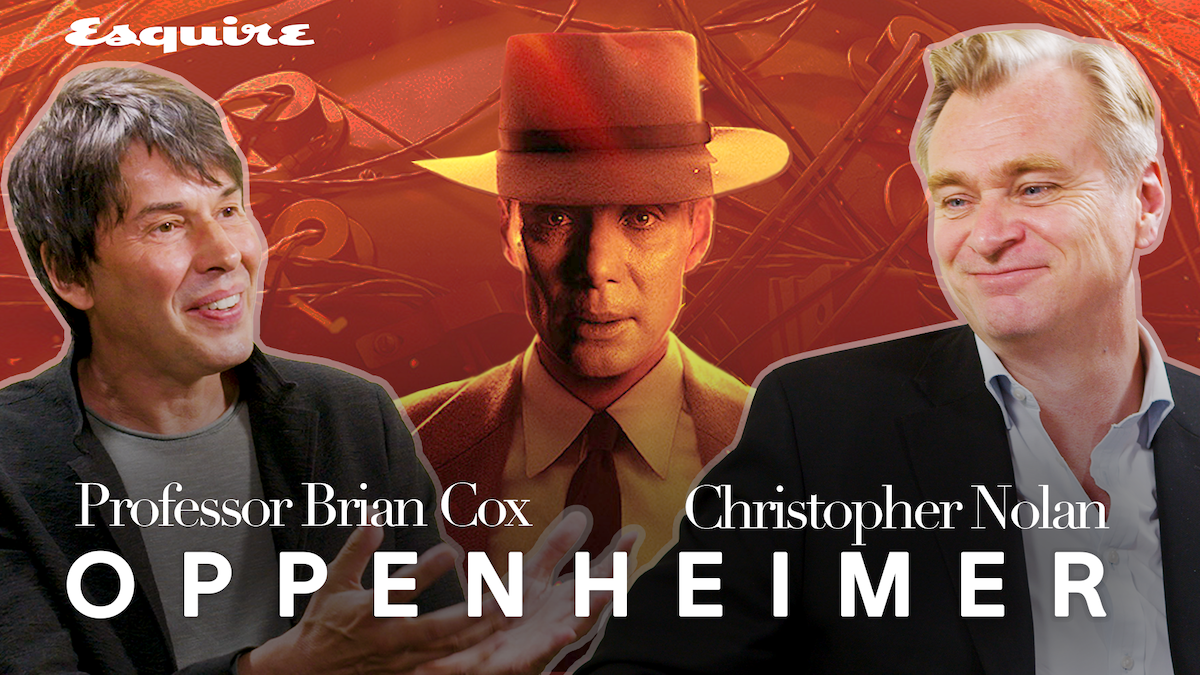When Oppenheimer leaves Cillian Murphy’s portrayal of Oppenheimer in 1954, it seems he’s at the very end of a line of scientific inquiry which has been pulling him forward since he was an undergraduate who was occasionally possessed by the desire to leave poison apples on his tutor’s desk. What once felt exhilarating has soured into the very real possibility that the human race could be annihilated. But Oppenheimer lived for more than a decade after that, and never stopped being a contrary and fascinating figure.
Starting in the same year the film ends, Oppenheimer, his wife Kitty (Emily Blunt) and their daughter Toni started spending much of the year living in a simple, spare home on St John, one of the US Virgin Islands. They lived close to the beach, and spent much of their time sailing and swimming. He did, though, venture back to America semi-regularly to give lectures about the bomb and the future of humanity in its shadow, as well as warning about the importance of using new technologies responsibly.
Along with Albert Einstein, British philosopher Bertrand Russell and his former Manhattan Project colleague Joseph Rotblat – who had left because he couldn’t reconcile his conscience with the bomb – Oppenheimer established the World Academy of Art and Science in 1960, a forum in which scientists and thinkers could sort out humanity’s problems outside of governmental influence.
Oppenheimer had declined to sign the Einstein-Russell Manifesto in 1955, which called for governments to avoid nuclear war at all costs, but lectured extensively around Europe and Japan about physics and how science fitted into society at large. Despite naming names of colleagues who had been sympathetic to the left in hope of clearing his own name, Oppenheimer had come to be seen as a martyr among the scientific community. Gradually, through the Fifties, he was brought back into the fold: he was made an Officer of France’s Legion of Honour in 1957 and elected a Foreign Member of the Royal Society in Britain.
The last gesture of reconciliation came from John F Kennedy, who gave Oppenheimer the Enrico Fermi Award in 1963 at the urging of Oppenheimer’s old colleagues including Edward Teller. By the time Oppenheimer was due to receive the award, Kennedy had been shot dead. Lyndon B Johnson presented Oppenheimer with it a week after Kennedy’s death, “for contributions to theoretical physics as a teacher and originator of ideas, and for leadership of the Los Alamos Laboratory and the atomic energy program during critical years”.
Though Oppenheimer references it twice – once during his first night with Jean Tatlock (Florence Pugh), and then just before the blast wave of the Trinity test hits Oppenheimer’s bunker – it was only in 1965 that Oppenheimer dropped his famous bit about becoming Death, the Destroyer of Worlds. To mark 20 years since the first atomic bomb was dropped on Hiroshima, the American network NBC News put together a documentary called The Decision to Drop the Bomb. Looking drawn and old, Oppenheimer stares down at the floor on an angle. His voice seems to shake slightly.
“We knew the world would not be the same,” he says in the recording. “A few people laughed, a few people cried, most people were silent. I remembered the line from the Hindu scripture, the Bhagavad-Gita. Vishnu is trying to persuade the Prince that he should do his duty and to impress him takes on his multi-armed form and says, ‘Now, I am become Death, the destroyer of worlds.’ I suppose we all thought that one way or another.”
Note that Oppenheimer is recalling what he thought, not what he said. A friend “once suggested that the quote sounded like one of Oppie’s ‘priestly exaggerations’,” according to American Prometheus, the biography on which Oppenheimer is based. It’s a slight misappropriation of what Bhagavad Gita is about at that point too – it’s more about recognising that there is no birth or death, only reincarnation and the never-ending cycle of life. But it’s a powerful indicator of the weight which Oppenheimer carried with him toward the end of his life.
He was known as the father of the atomic bomb, and his offspring was now the most feared thing in creation. The vibe was summed up by Johnson, who changed a line from W.H. Auden’s poem September 1, 1939 for his anti-nuclear campaign ad Daisy in 1964: “We must either love each other, or we must die.”
Christopher Nolan’s film isn’t the first artistic attempt to make sense of Oppenheimer: while the physicist was alive, Bertolt Brecht and Friedrich Dürrenmatt both wrote plays inspired by his work and ethical contortions, as did Heinar Kipphardt. Kipphardt’s play In the Matter of J. Robert Oppenheimer upset its subject, though, and Oppenheimer threatened to sue Kipphardt over it.
“The whole damn thing was a farce, and these people are trying to make a tragedy out of it,” Oppenheimer complained in 1964. “I had never said that I had regretted participating in a responsible way in the making of the bomb. I said that perhaps he [Kipphardt] had forgotten Guernica, Coventry, Hamburg, Dresden, Dachau, Warsaw, and Tokyo; but I had not, and that if he found it so difficult to understand, he should write a play about something else.”
Oppenheimer was a chain smoker for much of his life, and he was diagnosed with throat cancer toward the end of 1965. He fell into a coma on 15 February 1967 and died on 18 February. Kitty dropped the urn containing his ashes into the sea by their house on St John. When she died in 1972, she left the beach to the people of St John and it was turned into a public park.
But that still wasn’t the end of Oppenheimer’s story. His legacy has been hotly debated in the decades since the Trinity test and the bombings of Hiroshima and Nagasaki. In 2009, American historians and the former KGB agent Alexander Vassiliev worked together to confirm that Oppenheimer had never been a Soviet asset, though they felt his sympathies and support for the Communist Party of the USA were very real.
And only last year, the process by which Oppenheimer was stripped of his Q clearance – the kangaroo court we see in Oppenheimer, the one which denied his counsel access to evidence – was officially condemned by the US government, and the decision was vacated in December 2022 by Secretary of Energy Jennifer Granholm.
“In 1954, the Atomic Energy Commission revoked Dr Oppenheimer’s security clearance through a flawed process that violated the Commission’s own regulations,” she said at the time. “As time has passed, more evidence has come to light of the bias and unfairness of the process that Dr Oppenheimer was subjected to while the evidence of his loyalty and love of country have only been further affirmed.”
It took 70 years, but Oppenheimer was finally officially accepted by his country. That quote from the Bhagavad Gita follows him around, but there’s another quote which he pulled from South Asian philosophy that fits how he’s seen now. A couple of days before the Trinity test, Oppenheimer translated a section from the fifth century Hindu thinker Bhartṛhari's Śatakatraya: “In sleep, in confusion, in the depths of shame, / The good deeds a man has done before defend him.”














